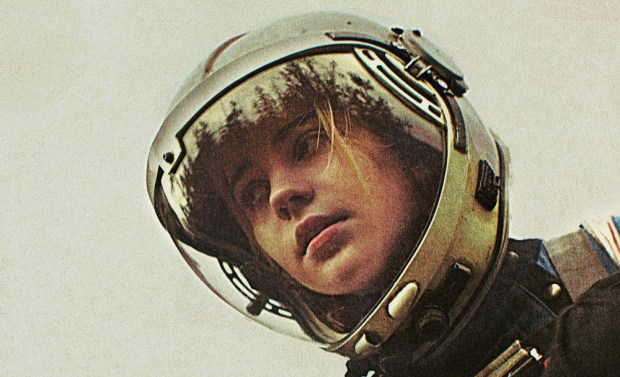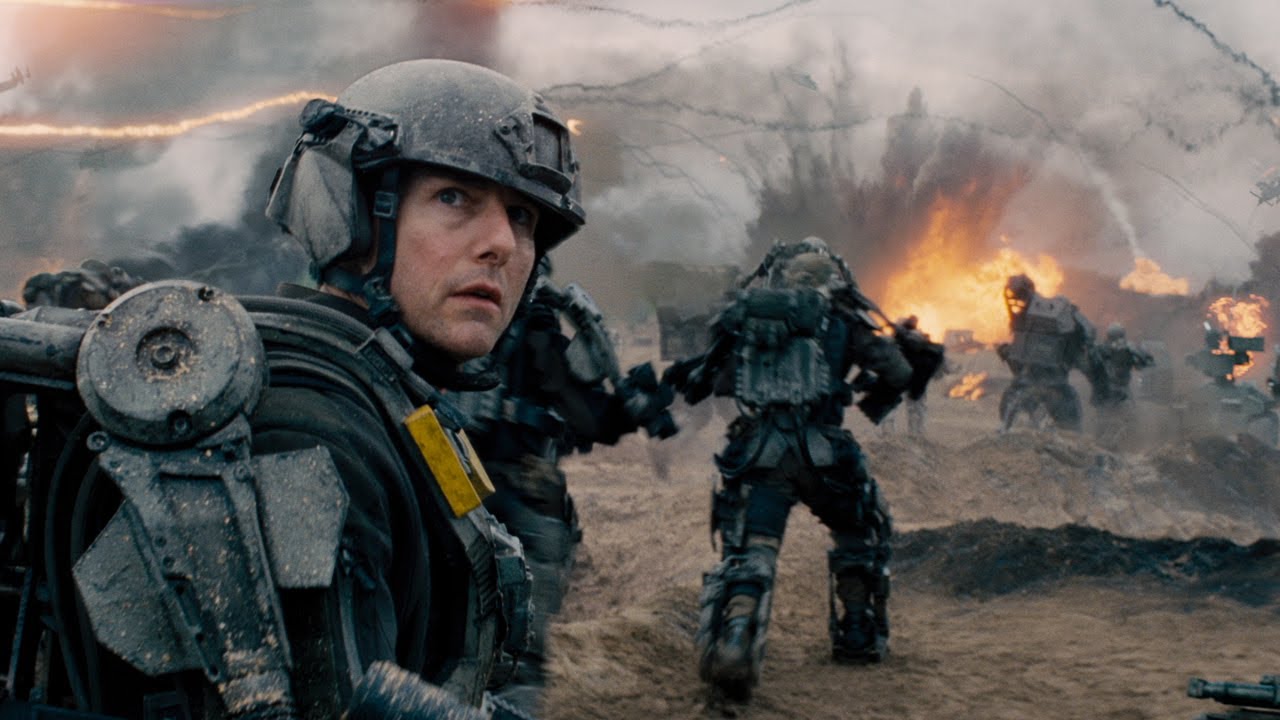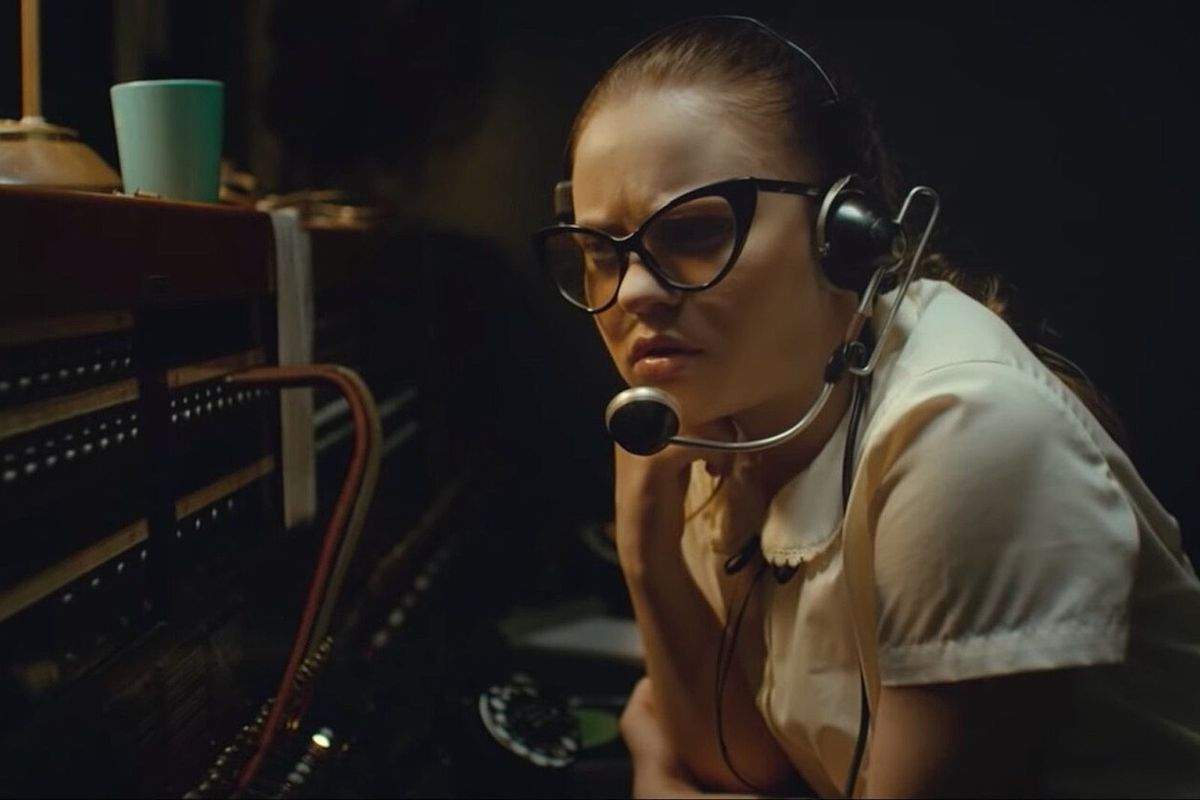6. Under The Skin (2013)

Aliens on earth narratives are core texts to the Sci-Fi genre. Aliens represent a number of fears human beings have; the unknown outsider, the invader, the interloper, the abductor. Aliens come to earth and destroy it, harvest it, cripple it, show humans just how insignificant they really are. Human beings are powerless to a race of interstellar beings capable of faster than light travel for the sole purpose of coming to our planet and flexing their superior power.
Aliens also represent what human beings are capable of when their fear of the unknown overwhelms them. Take E.T. for example. A sweet, innocent botanist is accidentally left on earth by his peaceful travel buddies. He is taken in by an innocent, someone who doesn’t know better. But these two innocents are surrounded by adults who are terrified of this creature, this representation of the unknown, this threat to a peaceful human existence. So threatening, in fact, that killing it would be easier than understanding it.
Under the Skin tells a similar story. An alien comes to earth, and it becomes clear that all she wants is to understand human beings, and their nature. They are sweet, considerate, protect one another and care for one another. She admires them, and respects them, wants to be like them, while also seducing, destroying and processing them to better understand them. Human beings do the same things to animals we admire. Throughout the movie, she develops such a singular understanding of human beings that she desires to become one.
The movie is haunting, slow, visceral and beautiful. It is hopeful, wonderful until the moment that it absolutely is not. Until the moment that what is under the skin of human nature presents itself to her, and shows her just how wrong she was.
7. Melancholia (2011)

Say what you will about Lars Von Trier, and there is a lot to say, but it has to be understood that in making Melancholia he may have single handedly made the greatest film about depression ever. The story centers around the lives of two sisters who are facing the end of the world as they know it (in this case literally, a planet is on the way to slam into Earth).
The film is split into two halves, one focusing on Kirsten Dunst’s life and her experience with depression. Her performance is so well done, so incredible, so lived in and true to life that anyone who has experiences with depression can feel themselves as her. Her depression is so powerful, so overwhelming, so destructive, that Von Trier has to pair it with a rogue planet on a collision course with the Earth for it to really convince the audience how world ending a depressive episode can feel.
The second half of the film, focusing on Charlotte Gainsbourg, throws the audience into the mind and body and experience of someone with crippling anxiety. There is nothing Gainsbourg can do to stop what is going to happen, she wishes she can be as detached and accepting of her fate as her depressed sister, but as anyone with anxiety can tell you- it is the things that are uncontrollable that they wish and stress and scream about wanting to change the most.
It is an end of the world movie, but unlike any ever made. It does not concern itself with looting, the falling of governments, last ditch rescue attempts by crews of plucky nobodies flying to the planet to destroy it, inevitably saving mankind. It only concerns itself with how the end of the world would feel to someone who already expects the worst in every situation, and to someone who can not help but spend the last days of her life worried about an unavoidable inevitably. It is a gorgeous film, handled delicately and lovingly by Von Trier. The two actresses at its core are outstanding, living monuments to mental illness and how cataclysmic life can be when in the grips of something you did not ask for, can not change all while being surrounded by others who do not understand.
8. Prospect (2018)

Prospect, at its core, is just a cool movie. It has everything someone could want from a tried and true western; treasure prospecting, guns, ships, shifting alliances, violence, and a dream of obtaining something bigger than yourself. It focuses on human’s inescapable desire to obtain that which does not belong to them in the name of profit and glory. It is not enough to discover worlds outside of our own for the knowledge and joy of it, because that planet has something that can be mined, scoured, destroyed for value. It is a sci-fi movie that is nowhere near as sleek, pretty, technologically advanced or futuristic as many others in the genre.
Instead this movie is gritty, slimy, dirty, raw. The suits are more reminiscent of victorian diving suits, the ships are rusted and taped together, the guns primitive but destructive so, ultimately, effective. It is a story that could very well be taking place in the 90’s, if the space race had continued moving forward instead of humans focusing on making computers smaller and more powerful for on earth performance. And, it is human. It is sweaty and mean, and holds a mirror up to modern consumerism and the tendencies humans have to be cruel to each other if it means bettering yourself. Also, it has to be said, it feels good (every once in a while) to not trust Pedro Pascal.
9. Edge of Tomorrow (2014)

Edge of Tomorrow may seem like an easy choice to add to any list of great Sci-Fi movies. That being said, why is it attached to a list of Sci-Fi movies that are almost exclusively about what a bummer it is to be a human being? That’s just it, not enough people saw this movie to really understand how much it satirizes the genre.
The poster has Emily Blunt and Tom Cruise waging war against an alien force hell bent on destroying Earth. A movie audiences have seen countless times. But Edge of Tomorrow starts off almost immediately by subverting expectations. Tom Cruise, the action hero and savior of movie theaters world wide, is a pathetic weasel in this movie. His cowardice is overwhelming, his sliminess gets under your skin, and when he gets arrested and sent to war the audience has to watch him die almost immediately in a very jarring way. But, then he wakes up at dawn of the previous day, and has to do it all over again.
Towards the halfway point of the movie, the resets he experiences every time he dies become less funny, less jarring, and more worrisome. No matter how hard he works to get out of having to go to war again, the country he is fighting for keeps sending him back in. At this point in the movie, the audience is completely desensitized seeing him die over and over again. He gets better at fighting, but dies. He gets further in the mission, but dies. If this war is not winnable by Tom Cruise having fought in it 100 times, is it worth fighting in the same way? Is this a question being asked about the military history of our country over the last few decades? If every day someone dies, but the next day is exactly the same, is the soldier the same or different? Is the war the same or different?
Edge of Tomorrow practically begs its audience to reconsider its views on war, its views on movie violence. How much is too much? When do we realize that maybe all this death isn’t for the betterment of us all, but the detriment?
10. The Vast of Night (2019)

The Vast of Night is a phenomenal piece of micro-budget filmmaking that is seeped and dripping with passion, confidence, and skill. The film is made up of dozens of perfectly paced, perfectly acted one shot takes of desperate monologues from people trying so hard to unburden themselves of the secrets that are corrupting them. It is a daring look at Sci-Fi, a genre typically reserved for the future, from the point of view of two outsiders in the middle of nowhere 1950’s suburbs of New Mexico.
One night, while the entire town is attending the first high school basketball game of the season, a switchboard operator and a radio DJ stumble across an alarming sound coming over the radio waves. Over the course of the film, the two leads slowly uncover the origins of this mysterious sound, and begin coming to terms with the idea that something greater than anything they have ever experienced may be happening in the skies directly above them.
The movie is filmed beautifully, fully engrossed in the smooth and polished ideals of 1950’s America. It is flushed with vernacular, and production design, and costuming so good it fully immerses its audience in the time period. Below the glitz and the shine, the movie is also pulsing with paranoia, racism, nationalism and fear. The technology is primitive now, but used in ways that make it seem cutting edge for the time period. The urgency in the switchboard calls, the quiet but pressing hum of wheels of tape turning, absorbing the secrets of the people being drawn together by what was happening to them.
Most importantly, the movie is quietly and frighteningly screaming with a uniquely American version of national delusion. With Sputnik and the cold war and the oncoming of the civil rights movements, what better way to ignore the looming, unspeakably important shift in human history that is coming than by being front row and center for a basketball game?